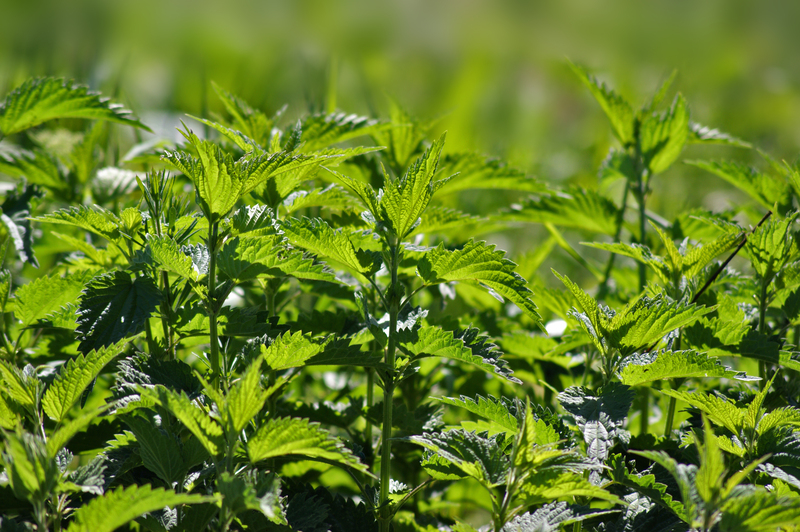Role of Lawns in Supporting Ecosystems
Posted on 06/10/2025
Role of Lawns in Supporting Ecosystems
Lawns are a ubiquitous feature in many parts of the world, seen everywhere from suburban neighborhoods to public parks. While often appreciated for their aesthetic value, lawns play a more significant role in supporting ecosystems than is commonly recognized. This article delves into the various ways that lawns contribute to ecological balance and biodiversity.
Carbon Sequestration
One of the most crucial roles that lawns play in supporting ecosystems is through carbon sequestration. Grass, like all plants, absorbs carbon dioxide from the atmosphere and uses it for photosynthesis. A well-maintained lawn can store a significant amount of carbon in its root systems and soil. This helps mitigate the effects of climate change by reducing the overall amount of CO2 in the atmosphere.

Habitat for Wildlife
Lawns can serve as habitats for a variety of wildlife, including insects, birds, and small mammals. Butterflies and bees, which are critical pollinators for many plant species, often find lawns to be suitable habitats. Additionally, some birds feed on the insects that lawns attract, while small mammals may find shelter within the grass. By supporting these creatures, lawns contribute to the broader ecosystem.
Soil Health and Erosion Control
Lawns play a pivotal role in maintaining soil health and preventing erosion. The roots of grass plants help to hold the soil together, reducing the risk of erosion caused by wind and water. Furthermore, lawns can enhance soil structure by improving its fertility through the natural breakdown of organic matter. This creates a favorable environment for microorganisms that are vital for soil health.
Water Filtration and Conservation
An often overlooked function of lawns is their role in water filtration and conservation. Grass can absorb rainfall and runoff, which helps to filter pollutants from water before it replenishes groundwater supplies. Properly managed lawns can also reduce the risk of flooding and improve water conservation by allowing more water to infiltrate into the soil rather than running off into storm drains.
Temperature Regulation
Another significant benefit of lawns is their ability to regulate temperatures. Grass absorbs and retains less heat compared to asphalt or concrete surfaces, which contributes to the cooling of the surrounding area. This can be particularly beneficial in urban settings where the "heat island" effect is a concern. By moderating temperatures, lawns can improve the comfort and health of both humans and wildlife.
Pros and Cons of Lawns
Pros
- Carbon sequestration reduces atmospheric CO2 levels.
- Provides habitats for a variety of wildlife species.
- Enhances soil health and prevents erosion.
- Assists in water filtration and conservation.
- Regulates temperatures, especially in urban areas.
Cons
- High water consumption, especially in arid regions.
- Potential for pollution from fertilizers and pesticides.
- Maintenance can be time-consuming and costly.
- Monoculture lawns support less biodiversity compared to natural landscapes.
Tips for Sustainable Lawn Care
- Minimize the use of chemical fertilizers and pesticides. Opt for organic solutions whenever possible.
- Choose native grass species that are well-adapted to your local climate and soil conditions.
- Incorporate a variety of plants to enhance biodiversity.
- Practice water-efficient irrigation methods such as drip irrigation or rainwater harvesting.
- Regularly aerate the soil to improve root growth and water infiltration.

Key Takeaways
- Lawns have a multifaceted role in supporting ecosystems: carbon sequestration, habitat provision, soil health, and more.
- While there are notable benefits, the cons must also be managed responsibly.
- Sustainable lawn care practices can amplify the ecological benefits of lawns.
Conclusion
Lawns can offer substantial ecological benefits when managed thoughtfully. From carbon sequestration to wildlife habitat provision, they play a crucial role in supporting ecosystems. By adopting sustainable lawn care practices, we can enhance these benefits while minimizing the associated drawbacks. Whether for urban cooling, soil health, or water conservation, the importance of lawns in our ecosystems cannot be understated.
Latest Posts
Creating a Serene Zen Garden Oasis
Perfect Mow Timing: How Often to Trim Your Lawn?



